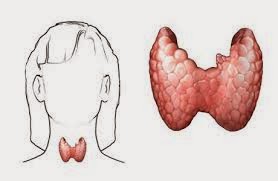ORGAN PHYSIOLOGY
Physiology
It is the
study of functions of human body with respect to processes like nutrition,
movement, respiration, digestion and reproduction.
1.
Heart
It is a pear
shaped organ.it lies in the chest cavity below the lungs. Size of the heart is
about our fist and it weighs 200 grams to 300 grams.
Heart diseases: angina, arrhythmia, congenital
myocarditis, atherosclerosis, coronary artery disease etc.
2.
Lungs
Lungs are
the paired organs.
Their main
work is respiration. Lungs provide the area for the exchange of oxygen from the
atmosphere with the carbon dioxide from the blood.
Lungs diseases: emphysema, asthma etc.
3.
Thyroid
It is a small butterfly shaped endocrine gland located at the back of
neck, just below the Adam’s apple.
Thyroid produces the following hormones
T3, T4, TSH
These hormones are responsible to influence every organ, tissue and cell of
body.
It controls body weight, heart rate,
menstrual cycles, muscular strength etc.
Thyroid malfunctioning
causes diseases: hypothyroidism,
hyperthyroidism



No comments:
Post a Comment